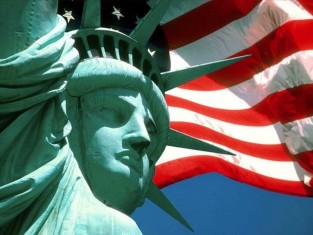Related Posts
 On my way to the School Monday, I listened to NPR’s Diane Rehm interview Yochi Dreazen, managing editor for news at Foreign Policy and author of the book The Invisible Front. They talked about mental health issues of people on active duty in the armed services and those who have retired. It was a heart-rending discussion that chronicled some of the ways in which our society has dealt with depression, post-traumatic stress disorder (PTSD) and suicide, often stigmatizing the very people who needed to be supported.
On my way to the School Monday, I listened to NPR’s Diane Rehm interview Yochi Dreazen, managing editor for news at Foreign Policy and author of the book The Invisible Front. They talked about mental health issues of people on active duty in the armed services and those who have retired. It was a heart-rending discussion that chronicled some of the ways in which our society has dealt with depression, post-traumatic stress disorder (PTSD) and suicide, often stigmatizing the very people who needed to be supported.
There are too few therapists available to military and retired military, and they often are too far away from the people they could help. Potential patients, on the other hand, do not want to endure the stigma of receiving mental health services and feel they are at risk of being branded weak or “crazy.” The situation has improved with our new awareness about what war does to its combatants—but understanding and treatment are still far from adequate. This is unjust—and unfair to people who risk their lives for the rest of us.
[ra_highlight_boxes]
I’m proud that this School has welcomed men and women currently in the military and those who have retired from it. Wonderful donors including Fred and Laura Brown and Sandy Moulton and Tom Wong have celebrated family members in the military by naming scholarships for them. We’re so grateful!
We’re proud of the successes of Jay Reyes, MPH, a major in the U.S. Army, doctoral student in environmental sciences and engineering, husband and father of four. He’s working on a dissertation project aimed at bringing safer water to those in combat, but his research could have many peacetime uses, as well.
I’m proud of my late father, Irving, who served as a medic on the front lines in World War II, serving in combat zones without carrying a weapon. On the first Memorial Day since his death last October, a day that would have been his 94th birthday, I thought about this heroic man who, like many of his generation, rarely talked about the war. His daughters did not know about his Purple Heart or Silver Star until later in our lives.
One of the few stories our father told us means a great deal to me. He told us about sitting by the bed of a dying soldier and trying to comfort him in his final hours. Father tried to get the company chaplain to stay with the young man, but the chaplain would not. Our father—one of the calmest, most peaceable people on earth—became so angry that he went to the chaplain’s tent and threw all his clothes outside. He said that the chaplain’s injustice in not comforting a dying man, a task that was part of his job description if not his moral duty, was more than he could bear. This image of our father advocating for a dying soldier and taking a stand against a man who failed to do his job at the most important of all moments will be with me always. It’s so easy today for Americans to be completely unfamiliar with people in the military. On and around Memorial Day, at least, we should make an effort to really see our warriors and veterans, to appreciate their sacrifices and thank them. Barbara
